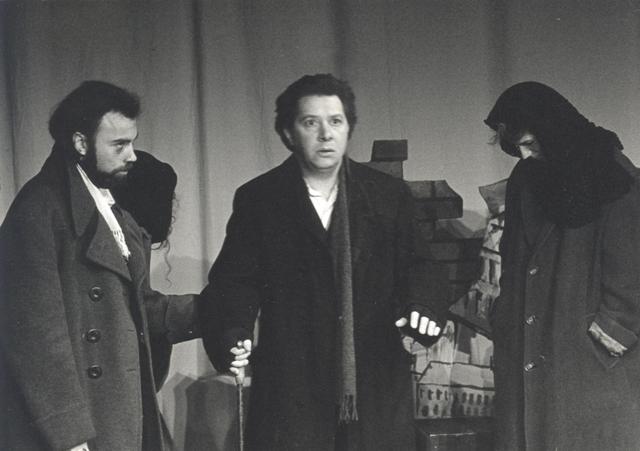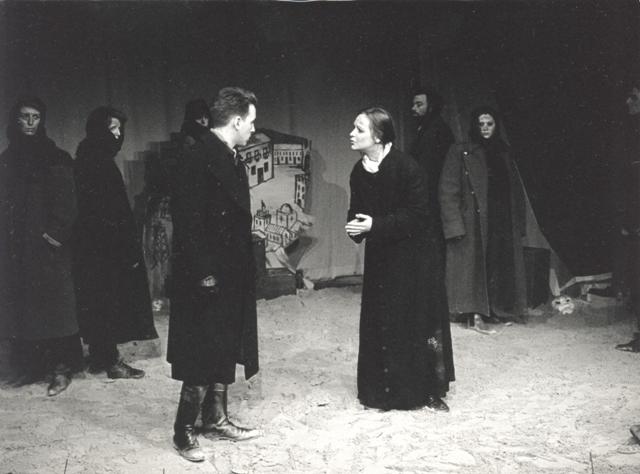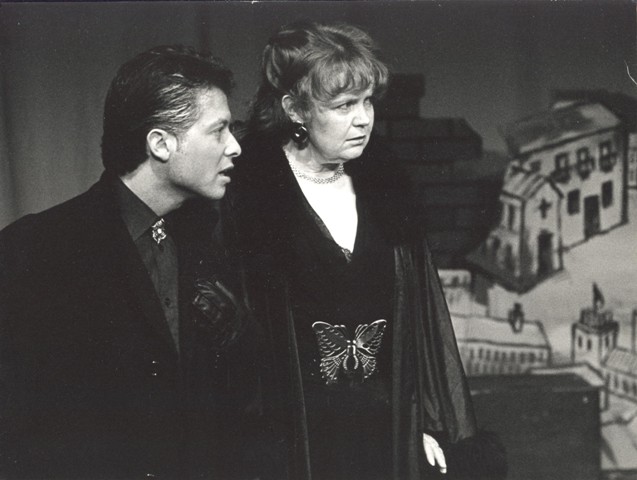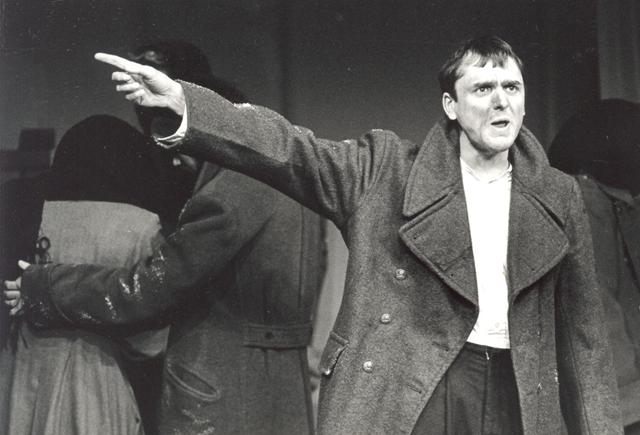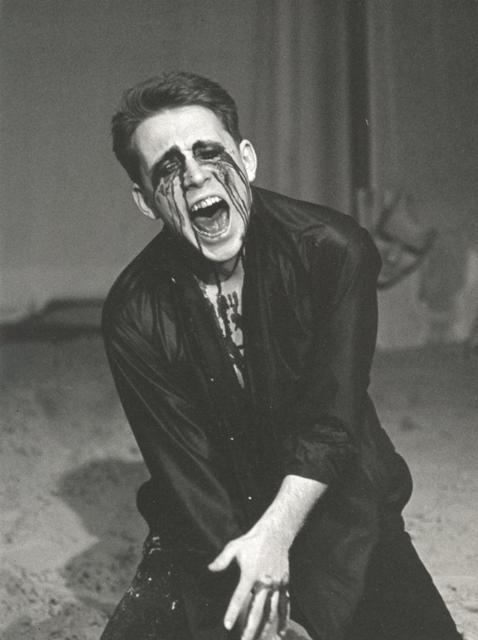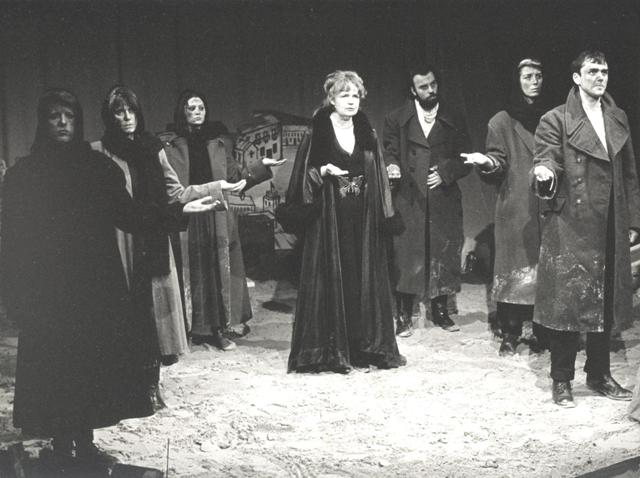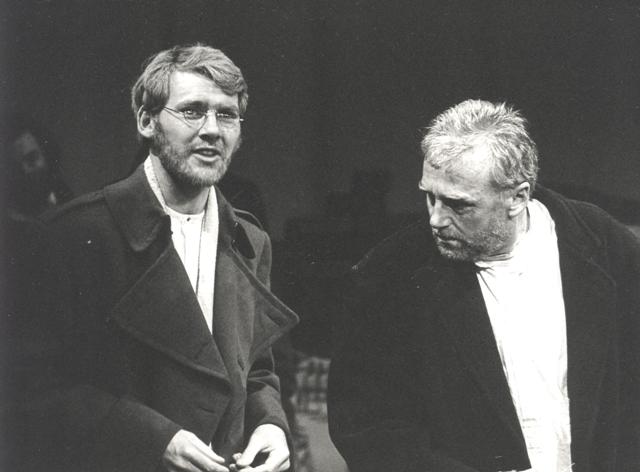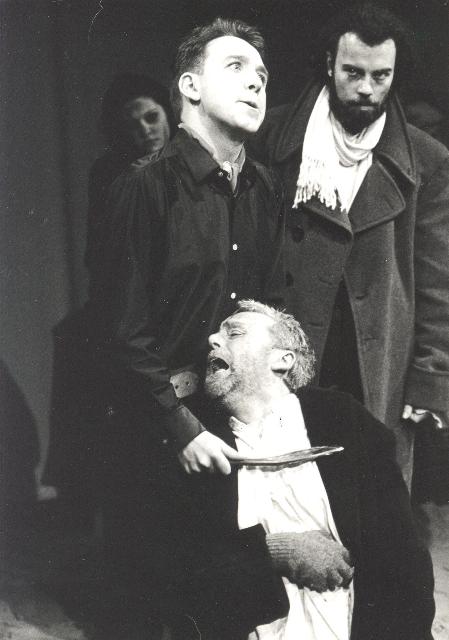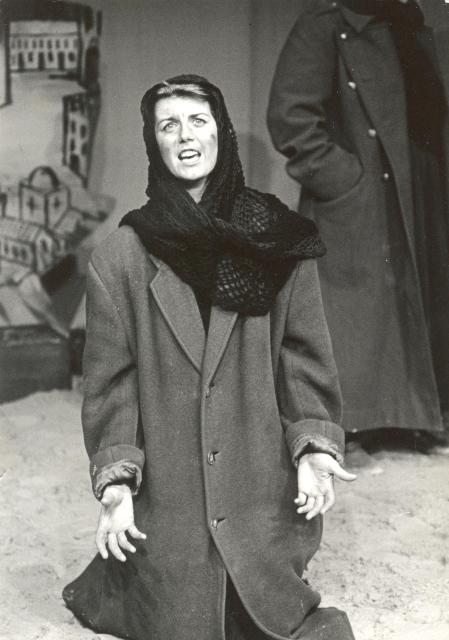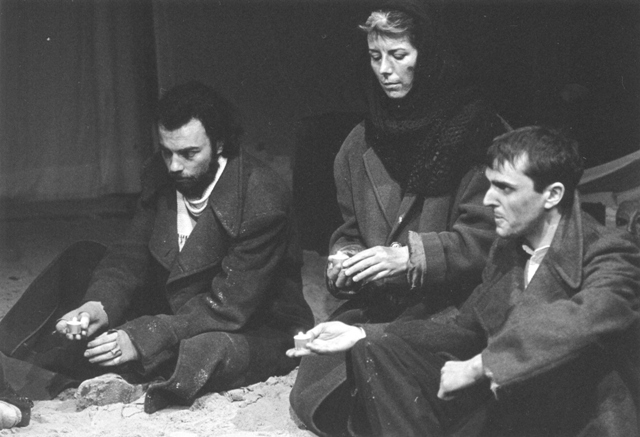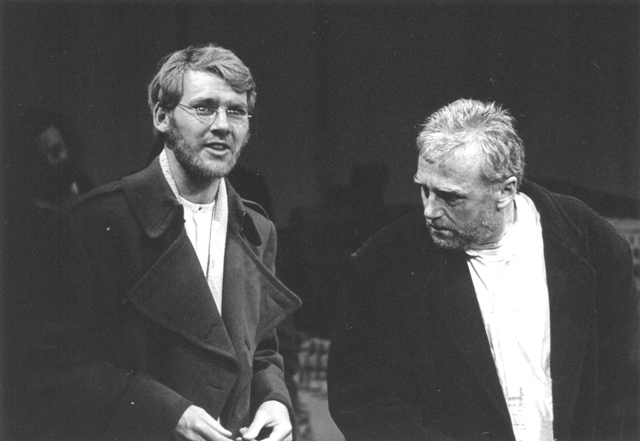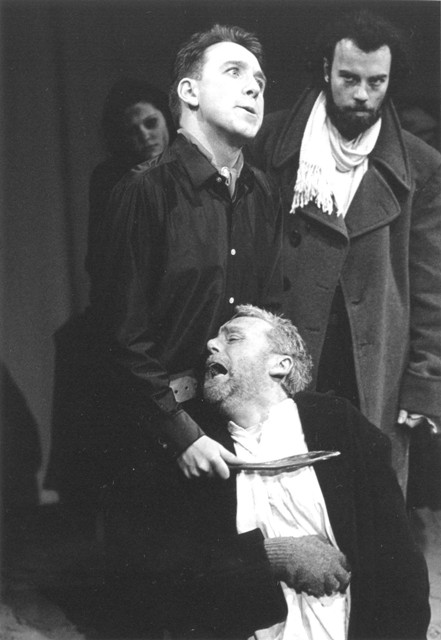Oedipus The King
Written by Sophocles (adapted and translated by Don Taylor)
Thurs 24th February - Sat 26th February & Tues 1st March - Sat 5th March 1994
Directed by John O'Hanlon
The great mythological figure of Oedipus is the subject of the best known ancient Greek tragedy. It is a work of immense power and stands with King Lear as a masterwork on human suffering and divine providence. This is an excellent opportunity to witness one of the great theatrical landmarks of Western drama.
previous
production
next
production
Sophocles (c497 BC - c407 BC)
Sophocles was born in Colonus Hippius (now part of Athens), he was to become one of the great playwrights of the golden age. The son of a wealthy merchant, he enjoyed all the comforts of a thriving Greek empire. Sophocles was provided with the best traditional aristocratic education. He studied all of the arts. By the age of sixteen, he was already known for his beauty and grace and was chosen to lead a choir of boys at a celebration of the victory of Salamis in 480 BC. In 468 BC he defeated Aeschylus, whose pre-eminence as a tragic poet had long been undisputed, in a dramatic competition and from 468 BC Sophocles won first prize about 20 times and many second prizes. His life coincided with the period of Athenian greatness. He was not politically active or militarily inclined, but the Athenians twice elected him to high military office.
Sophocles wrote more than 100 plays of which seven complete tragedies and fragments of 80 or 90 others are preserved. He was the first to add a third actor. He also abolished the trilogic form. Sophocles chose to make each tragedy a complete entity in itself; as a result, he had to pack all of his action into the shorter form, and this clearly offered greater dramatic possibilities. Sophocles also effected a transformation in the spirit and significance of a tragedy; thereafter, although religion and morality were still major dramatic themes, the plights, decisions and fates of individuals became the chief interest of Greek tragedy.
Don Taylor (1936 - 2003)
Don Taylor was a playwright, TV and theatre director and translator, best known for his play 'The Roses of Eyam', the story of the village of Eyam in Derbyshire which chose forcible isolation when plague broke out thus preventing it from spreading to near-by communities.
Taylor began his career in 1960 when he joined the BBC and worked almost exclusively over the next four years although artistic differences meant that he left when his contract expired. He returned as a freelance director in 1964 and 1965, after which he claimed he was blacklisted by the BBC Drama department and it was not until 1972 that he again returned to direct his own plays 'The Exorcism' and, the following year, 'The Roses of Eyam'.
The first professional production of any of his plays was a 1967 production of 'Grounds for Marriage'. This was followed by 'Sisters' (1968) and 'Sam Foster Comes Home' (1969). His writing for television included 'The Theban Plays' ('Oedipus the King', 'Oedipus at Colonus' and 'Antigone'), 'When the Actors Come' (1978), and 'Last Visitor for Mr Hugh Peter' (1981). A stage version of Oedipus the King was produced by the National Youth Theatre in 1998. His last work was 'The Road to the Sea'.
top of page
This play was produced for TV in 1984 and directed by the writer/translator Don Taylor. Plagues are ravaging Thebes, and the blind fortune-teller Tieresias tells the mythical King Oedipus that the gods are unhappy. The murder of the former king has gone unavenged, and Oedipus sets out to find the killer.
In the myth, Oedipus was the son of Laius and Jocasta, King and Queen of Thebes. The background to the story is that after having been married some time without children, his parents consulted the Oracle of Apollo at Delphi. The Oracle foretold that should Laius have a son, the son would kill him and marry Jocasta. In an attempt to prevent this, when Jocasta bore a son, they gave the boy to a servant to abandon on the nearby mountain. However, rather than leave the child to die, the sympathetic servant passed the baby onto a shepherd from Corinth.
Oedipus is later adopted by Polybus of Corinth but is not told the truth. Many years later, Oedipus uncovers that Polybus is not his real father and asks the same Delphic Oracle for the true identity of his father. The Oracle does not answer his question but instead tells him that he is destined to kill his father and marry his mother. In his attempt to avoid the fate predicted by the Oracle, he decides to not return home to Corinth. Since it is near to Delphi, Oedipus decides to go to Thebes and the prophecy hurtles towards its inevitable conclusion.
top of page
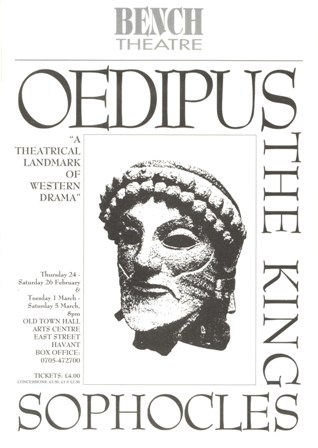
This play was staged at Havant Arts Centre, East Street Havant - Bench Theatre's home since 1977.
| Oedipus | Neil Kendall |
| Priestess | Catherine Bates |
| Creon | Alan Jenkins |
| Teiresias | John O'Hanlon |
| Jocasta | Ingrid Corrigan |
| Corinthian Messenger | Vincent Adams |
| Old Shepherd | Pete Woodward |
| Messenger | Sally Hartley |
| Chorus | Rosemary Sawyer
Andrew Caple
Rebecca Webb
Jude Salmon
Sally Hartley
Tony Ford |
| Teiresias's Boy | Mathew Collins |
| Antigone | Emily Collins |
| Ismene | Sarah Healey |
Crew
| Director | John O'Hanlon |
| Stage Manager | Lindi Nettleton |
| Lighting Design | Andrew Caple |
| Lighting Operation | Andrew Ingle |
| Sound Operation | Kathy O'Hanlon
Tim Taylor |
| Music Effects | Mike Morton |
| Live Percussion | Catherine Bates |
| Set Design | Lucy Golden
Tim Taylor
John O'Hanlon |
Director's Notes
Greek tragedy was performed as part of the spring rituals in honour of Dionysus, the god of wine, vegetation and fertility, in huge theatres where actors, chorus and audience were united by the ceremonial spirit of the occasion under the open sky and in a natural setting. The Theatre of Dionysus at Athens, where Oedipus and all the other Greek tragedies of which we have any real knowledge were first performed, was on the hillsides below the Acropolis, and could hold an audience of about 14,000. The story of Oedipus was well known to the Greek audiences. The main playwrights (or poets) wrote their own versions of the story, adapting and changing the details depending on what version of the myth was believed. However Sophocles version is the only one to have survived. Modern versions of the story are not unknown; Steven Berkoff has written a powerful retelling of the myth, 'Greek', setting it in the back streets of the East End; Stravinsky and Cocteau's opera-oratorio, 'Oedipus Rex' provides a startling version set against a political and religious backdrop; and presently there will be a 'new' version of the Oedipus story, 'Omma', at the Young Vic in London, although rehearsals came to a halt recently when the actors left the production two weeks before the opening night. Sophocles' Oedipus was a reminder of the Gods' power over man and to teach him a salutary lesson. Of course such 'lessons' are irrelevant to us today. Or are they?
John O'Hanlon
top of page
The NewsReviewer Name
Haunting story of Oedipus
Havant: The haunting murmurs of distressed parents and villagers in white, expressionless masks filled Havant Arts Centre with a certain eeriness last week. It was the start of the Bench Theatre Company's powerful production - Oedipus The King by the Greek playwright Sophocles.
Strong performances from Neil Kendall as Oedipus and Alan Jenkins as Creon and other well-acted parts, unravelled an emotive take of extreme human suffering, perhaps more disturbing than any scenario imaginable.
King Oedipus was taken in by a loving couple when he was a few days old after his true mother had given him to a shepherd to kill him because she was informed the boy was cursed by the gods. The story as it developed, uncovered a number of sinister occurrences as Oedipus discovered he had killed his father without knowing his blood tie and married his mother, which meant his own children were also his brothers and sisters. In the end the sickened king gouged his own eyes out.
The News, 7th March 1994
top of page
Production Photographs

